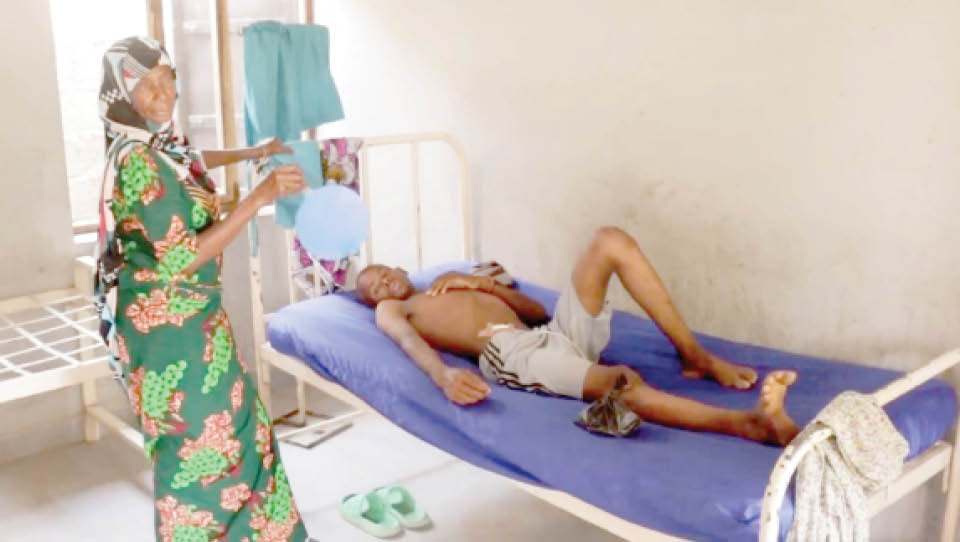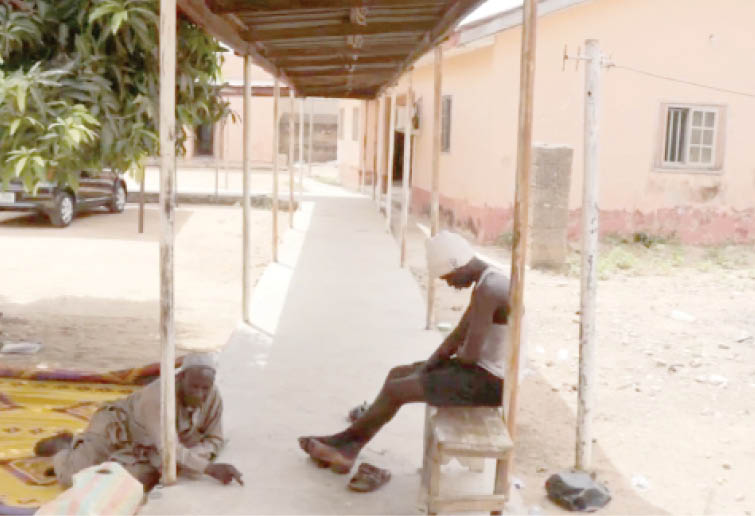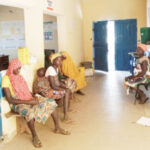Residents of Maiduguri, Damaturu and Jalingo cities say they need respite from the blistering heat waves currently being experienced in Borno, Yobe, Taraba and other parts of the northeastern states.
The excruciating heat is putting a heavy burden on businesses and agriculture, as well as making thousands sick with heat-induced illnesses like meningitis, cholera, heat rash, heat exhaustion, renal issues and high blood pressure.
On February 15, the Nigerian Meteorological Agency (NiMet) had predicted prolonged heat wave in the north and warned that the high level of heat can cause dehydration, heat-related illness and respiratory issues, among other chronic conditions.
The agency advised the public to take adequate fluid to keep hydrated, wear light clothing to reduce exposure to high temperatures and avoid strenuous activities during peak heat times.
- Cost of living: Bauchi residents embrace local brown sugar
- 120 students graduate with first class in Wukari varsity
“Air temperatures hit 41°C over the north and 39°C over the south with model projections indicating temperatures to remain high in the coming days.
“Implication – dehydration, this could also cause fainting, chicken pox disease, measles, heat rash, weakness of the body, slight fever and dry lips; heat-related Illnesses; respiratory issues; and increased vulnerability to chronic conditions,” the forecast reads.
Our correspondents who went round markets, hospitals and offices in the capital cities report how people are adopting different ways to curb the excruciating heat.
In hospitals, doctors were seen overwhelmed, trying to cope with the numbers of patients coming in, while patients’ relatives are seen fanning them, trying to relieve their loved ones from the heatstroke.

In business places, especially for those who deal in fruits and vegetables, traders complained bitterly that their goods usually get wilted and perish due to the excruciating heat.
In Maiduguri, the Borno State capital, where residents have a long history of dealing with heat from March to June, doctors have advised people to minimise movement and stay indoors.
Dr Tijjani Ammani advised that people should use light clothing and sunglasses during the day to ease the heat and filter out the sun’s harmful ultraviolet rays to protect their eyes.
“Try as much as possible not to fall, drink a lot of water, avoid the sun by staying indoors and take food that contains less salt,” he said.
Ammani observed that with epileptic power supply in the state, health facilities would not function well, so emergency cases may not be handled as expected.
Danladi Barrister, a resident of Bulunkutu, said at night, people are forced to sleep outside their rooms despite the security implication.
“The heat is so intense that one can’t sleep inside the room. The wind is still, there are mosquitoes, and then no electricity to power the fan. For over a week now, I have not seen a flash of light (electricity),” he said.
In Damaturu, the Yobe State capital, the situation was so intense that residents spend more time indoors or under trees to mitigate the heat.
Muhammad Bashir Muhammad, a resident of Hausari who was seen sitting under a tree, told Daily Trust Saturday that the heatwave this year is terrible.
“I don’t know why, but the best way to overcome this heat is for people to plant more trees. We need to plant trees in our homes, farms and school,” he said.
Another resident of Sabon Fegi, Muhammad Habib, told Daily Trust Saturday that the season took people unawares.
“We didn’t expect the heatwaves to come early; we cannot sleep in our rooms in the night because of heat. Before now, I used to trek from home to my work place to save transport fare but I cannot try it now,” he said.
Abubakar Sadiq Hassan, a resident of Ajari Central, said the situation has affected his health and source of income, forcing him to sleep and wake up early to cope with the situation.
“I work in a rice milling company but I fell sick due to the heatwave. I decided to leave the job in order to survive because I realised that the sickness has a connection with heat,” he said.
Another resident of Shagari Quarters, Umar Shattima Mali, told Daily Trust Saturday that the poor electricity supply in the state worsened the situation.
“Usually, I prefer sleeping inside the room; that was before Boko Haram terrorists damaged our electricity, but now, I’m forced to sleep outside because there is no power supply and the heat is worse at night. We heard about the outbreak of meningitis in some parts of the state where more than 20 students died. This is to tell you the severity of the issue, and how things are gradually getting out of hand as a result of the heatwave,” he said.
In Taraba, a fruit seller at Michelin, Muhammad Badau, described his business as the biggest casualty of the heat,” adding that “One must dedicate 100 per cent of his time if he wants to remain in the business. We usually stop buying and selling delicate fruits like apples, bananas, grapes because the hot weather easily makes them rotten. The same thing with vegetables; we always cover them with a sack and sprinkle water on them frequently,” he said.
Our correspondent who visited a hospital in Taraba observed patients and their care givers lying down on mats outside the wards, under tree sheds.
A patient Ismael said the power supply was epileptic and the hospital generator was unreliable.
“There is unreliable power supply but despite the challenges, the doctors are working relentlessly,” he said.
A resident, Christi Baba said she couldn’t sleep in the night due to the heat and uses an umbrella to protect herself from the heat in the afternoon.
“We don’t have money to install an air conditioner in the house, and I don’t have a car with AC to drive to my office. So, I use umbrella,” she said.
However, the northeast is not the only region affected by this sweltering heat this week, the northwest is also affected, especially Sokoto, Zamfara, Kebbi and Katsina states.
While very high temperature is recorded in these parts of the country, experts say to be described as a heat wave, the temperature has to be at least 4.5 degrees above normal or above 45 degrees Celsius.
Hamisu K. Matazu (Maiduguri), Yusuf Bawuro (Jalingo) & Habibu I. Gimba (Damaturu)

 Join Daily Trust WhatsApp Community For Quick Access To News and Happenings Around You.
Join Daily Trust WhatsApp Community For Quick Access To News and Happenings Around You.


